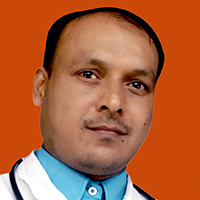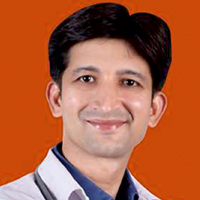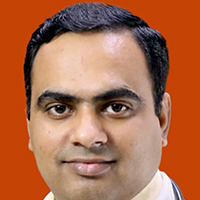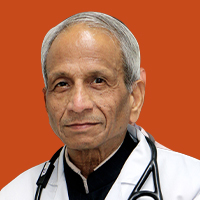

Successful Treatments
Clinics
Doctors
What is Bradycardia?
Bradycardia is a cardiovascular condition where the heart beats per minute (BPM) are less than 60 in adults. Such a medical condition may only be normal in the physically active individual or when asleep. However,the condition can lead to severe health complications if the heart beat is very slow and the heart is not able to pump enough oxygen and blood to the different organs in the body.
Causes of Bradycardia
Bradycardia is a medical condition characterised by a lower-than-normal pulse rate. The normal rate is less than 60 BPM in adults. The disease can be a result of some of the following factors:
Damage of heart tissue: Bradycardia is caused by ageing, myocardial infarction, or coronary artery disease which interferes with the electrical pathways of the heart thus interfering with heart rate.
Inflammatory diseases: These include myocarditis and pericarditis, which hinder the electrical impulses of the heart. They may sometimes cause a slower heart rate but mostly inflame the heart muscle, thereby impairing the working of the heart.
Inherited conditions: Bradycardia can also be caused by congenital heart defects that may interfere with the electrical as well as the structural system of the heart.
Electrolyte disturbance: It is important to know that potassium, calcium, and magnesium disturbances can have profound effects on electrical impulses of the heart and usual heart function at both high and low levels.
Prescribed Medications: The use of beta-blockers, antiarrhythmics, and digoxin, which are prescription drugs for slowing the heart, regulating high blood pressure and irregular heart rhythms, and generally treating heart conditions.
Symptoms of Bradycardia
Bradycardia can cause a variety of symptoms that can range from mild to serious, depending on its severity. Some of the common symptoms of Bradycardia are mentioned below:
Have you noticed any of the following symptoms?
- You are having breathing difficulties
- Chest Pain
- Extreme exhaustion
- The feeling of fatigue and tiredness
Jiva Ayunique™ Treatment Philosophy - A Holistic Approach for Treatment of Bradycardia
Jiva Ayurveda provides holistic evidence-based Ayurvedic treatment for Bradycardia. The treatment programs are designed to cure the disease from the root and not just the symptoms and would be concerned with stability, balance, and the kind of holistic healing.
Core Principles of the Jiva Ayunique™ Treatment Protocol
HACCP-certified Ayurvedic medicines: The scientifically formulated combinations of mixtures, help a person regain balance in himself or herself and maintain emotional stability.
Yoga, Meditation, and Mindfulness-Practice: Soft techniques for mental wellness and general well-being.
Ayurvedic healing treatments: Panchakarma and relaxing massages that purify the system and harmonise the emotions.
Diet and Lifestyle Counselling: How to change your diet and lifestyle in line with the recommendations from the experts to get you in the best shape of health.
Ayurvedic Medicines for Bradycardia
The problems associated with Bradycardia can be alleviated by the consumption of HACCP-certified ayurvedic medicines from Jiva Ayurveda. The following herbal plants are commonly included in Ayurvedic Bradycardia medication formulations:
Withania somnifera or ashwagandha: It is a heart-healing herb that balances the energies of the body.
Sankhapushpi or Convolvulus pluricaulis: It has gained recognition in present times for its heart-soothing abilities.
Arjuna or Terminalia arjuna: It is a plant which tones up the cardiac muscles and protects the heart.
Boerhavia diffusa: It is known as punarnava in the vernacular, is a rejuvenating herb which can tone up cardiac activity.
Dalchini, or cinnamon tamala: It is a spice that has a warming effect and facilitates the flow of blood.
Choti Elaichi or Elettaria cardamomum: It is extremely popular due to its potential in making the heart stronger.
Frequently Asked Questions About Bradycardia
What is relative Bradycardia?
Relative Bradycardia is a condition in which the heart rate is higher than normal for a particular fever or disease, but not necessarily below a usual resting rate. A fever or virus typically causes an increase in heart rate, but relative Bradycardia brings about a lesser increase than one would have predicted.
What is Sinus Bradycardia ECG?
On an ECG, sinus Bradycardia is defined by a slow but steady heartbeat that comes from the sinus node, the heart's natural pacemaker.
What is the meaning of sinus Bradycardia with sinus arrhythmia?
Because of the differences in the timing of heartbeats, sinus Bradycardia with sinus arrhythmia is a disorder where the heart rate is not only irregular but slower than what would be normally seen.
What are tachycardia and Bradycardia?
Tachycardia is the condition when the heart beats faster than normal i.e. 100 beats per minute whereas Bradycardia is the condition of the heart when it has less than 60 beats per minute.
What is Bradycardia with hypertension and hypotension?
Bradycardia with hypertension and hypotension slows down the heart rate at the same time experiencing fluctuating incidences of both high and low blood pressure respectively.
What is the initial dose of atropine for Bradycardia?
In the treatment of Bradycardia, 1 mg of atropine should be administered intravenously. An additional dose can then be repeated up to a maximum dose of 3 mg if no response occurs, every 3 to 5 minutes.
Why do athletes have Bradycardia?
A large percentage of the athletes exhibit Bradycardia, which is defined as a slower heart rate resulting from increased heart efficiency, increased vagal tone, adaptation to endurance training, low sympathetic activity, and better oxygen utilisation. The habit of exercise makes the heart muscle stronger and better at pumping blood with each beat. This makes there less demand for a high resting heart rate. Athletes also have a more suppressed sympathetic nervous activity at rest.
What are the Ayurvedic medicines for Bradycardia?
Bradycardia can be treated by HACCP-certified ayurvedic medicines from Jiva Ayurveda. The commonly used herbs include Withania somnifera, sankhapushpi, Arjuna, Boerhavia diffusa, Dalchini, and Elettaria cardamomum. These plants regulate body energies, tone the cardiac muscles, protect the heart, improve blood flow, and strengthen the heart.
Is it possible that Ayurvedic medicine for Bradycardia has side effects?
These medicines have several side effects, which may range from digestive irritations or some allergic responses. So, it is recommended to take the supervision of a licensed Ayurvedic specialist.
Top Ayurveda Doctors
Our Happy Patients
Social Timeline
Related Disease
- Ayurvedic Treatment for Hypertension
- Ayurvedic Treatment for High Cholesterol
- Ayurvedic Treatment for Angina Pectoris
- Ayurvedic Treatment for Ischaemic Heart Disease
- Ayurvedic Treatment for Coronary Artery Disease (CAD)
- Ayurvedic Treatment for Palpitations
- Ayurvedic Treatment for Costochondritis
- Ayurvedic Treatment for Ventricular Tachycardia
- Ayurvedic Treatment for Tachycardia
- Get Ayurvedic Treatment for Bradycardia
- Get Ayurvedic Treatment for Arrhythmia
Latest Blogs
- क्या अचानक बढ़ता दर्द और जोड़ों की लालिमा गाउट की निशानी है? शरीर में जमा अम्ल की भूमिका समझिए
- Migraine और भोजन का समय: देर से खाना सिरदर्द को क्यों बढ़ा देता है?
- क्या एंटीबायोटिक लेने के बाद पाचन पूरी तरह बिगड़ गया? आयुर्वेद के अनुसार Colitis के उपचार जानें
- अगर मामूली आहार भी पाचन तंत्र सहन न कर पाए तो Colitis को हल्का क्यों नहीं मानना चाहिए? आयुर्वेदिक दृष्टि से जानें
- लंबे समय से सक्रिय Colitis क्यों शरीर की रिकवरी क्षमता को कमज़ोर कर देती है? आयुर्वेदिक नज़र से जानें
- नॉर्मल एंडोस्कोपी, नॉर्मल रिपोर्ट्स… फिर भी रोज़ दर्द—IBS में गलत इलाज कैसे बीमारी को Chronic बना देता है! आयुर्वेदिक उपचार समझें
- क्या बाहर का खाना या मसालेदार भोजन आपके IBS को तुरंत ट्रिगर कर देता है? आयुर्वेदिक दृष्टि से समझें और कब Ayurvedic doctor से मिलना चाहिए जानें
- IBS में दवाइयाँ काम क्यों नहीं करतीं? आयुर्वेदिक कारण और उपचार समझें
- कभी कब्ज़, कभी दस्त: यह सिर्फ पाचन नहीं, पूरे सिस्टम का असंतुलन हो सकता है! जानें कब Ayurvedic doctor से मिलना ज़रूरी हो जाता है
- क्या सर्दियों में दवाइयों के बावजूद साँस पूरी नहीं खुलती? अस्थमा की जड़ आयुर्वेद से समझें
- क्या धूल, धुआँ या परफ्यूम से तुरंत साँस लेने में तकलीफ़ होती है? Asthma के ट्रिगर आयुर्वेद की नज़र से समझें
- सर्दियों में अस्थमा क्यों ज़्यादा बिगड़ जाता है? ठंडी हवा और कफ-वृद्धि का आयुर्वेदिक कारण जानें
- क्या ठंडी हवा लगते ही सीने में जकड़न और साँस लेने में परेशानी होती है? अस्थमा को आयुर्वेद की नज़र से जानें
- क्या सुबह उठते ही बलगम के साथ खाँसी आना अस्थमा का संकेत है? आयुर्वेद से समझें
- क्या लंबे समय तक लैक्सेटिव का उपयोग आपकी कब्ज़ को और जटिल बना रहा है? आयुर्वेदिक समाधान जानें
- क्या गैस, पेट फूलना और सिरदर्द का साथ में होना Chronic Constipation का क्लासिक पैटर्न है? आयुर्वेदिक व्याख्या समझें
- क्या सुबह नींद खुलते ही पेट साफ न होना ‘धीमी अग्नि’ का संकेत है? दीर्घकालिक कब्ज़ में आयुर्वेदिक कारण जानें
- क्या लंबे समय तक बैठकर काम करने से आपकी कब्ज़ लगातार बढ़ रही है? आयुर्वेदिक दृष्टिकोण देखें
- क्या कब्ज़ के चलते आपकी नींद, ऊर्जा और पाचन सब प्रभावित हो रहे हैं? आयुर्वेद में इसके मूल कारण और ज़रूरी उपाय जानें
- क्या तनाव और चिंता भी Chronic Constipation का छुपा हुआ कारण बन सकते हैं? आयुर्वेदिक दृष्टि देखें
Ayurvedic Doctor In Top Cities
- Ayurvedic Doctors in Bangalore
- Ayurvedic Doctors in Pune
- Ayurvedic Doctors in Delhi
- Ayurvedic Doctors in Hyderabad
- Ayurvedic Doctors in Indore
- Ayurvedic Doctors in Mumbai
- Ayurvedic Doctors in Lucknow
- Ayurvedic Doctors in Kolkata
- Ayurvedic Doctors in Patna
- Ayurvedic Doctors in Vadodara
- Ayurvedic Doctors in Ahmedabad
- Ayurvedic Doctors in Chandigarh
- Ayurvedic Doctors in Gurugaon
- Ayurvedic Doctors in Jaipur
- Ayurvedic Doctors in Kanpur
- Ayurvedic Doctors in Noida
- Ayurvedic Doctors in Ranchi
- Ayurvedic Doctors in Bhopal
- Ayurvedic Doctors in Ludhiana
- Ayurvedic Doctors in Dehradun


























